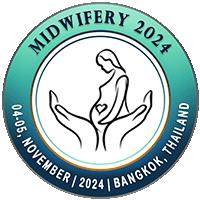
Lea Bombac Tavcar
Ljubljana University, SloveniaTitle: Maternal fatigue and depression related to postpartum anemia
Abstract
Anemia affects between up to 80% of women in the postpartum period. It may have several adverse health consequences, disorders of physical fatigue, decrease in cognitive functions and mood, decrease in the function of the immune system and shorter duration of breastfeeding. In addition, postpartum anemia has been shown to be one of the main risk factors for postpartum depression and significantly disrupts interactions between mother and child. Iron deficiency is the main cause of postpartum anemia, so standard treatment is oral iron replacement with ferrous sulfate, while red blood cell transfusion is reserved for more severe cases or those with symptoms and signs of anemia. The effectiveness of oral iron is limited by gastrointestinal side effects, irregular medication intake and extended time, which is needed to treat anemia and replenish iron stores. On the other hand, red blood cell transfusion is associated with several risks, including transfusion of the wrong blood, infections, anaphylaxis and lung damage. In recent decades, modern formulas of intravenous iron have been shown to be safe and effective alternatives for the treatment of iron deficiency outside of pregnancy. In several studies effectiveness of intravenous iron preparations has been evaluated also in the treatment of anemia in postpartum period. In most clinical randomized studies a faster and greater increase in hemoglobin levels was observed after application of intravenous iron preparations compared to oral administration of iron. Most randomized controlled trials were focused exclusively on hematological indicies. However, iron deficiency contributes to fatigue in postpartum women, and iron therapy may be very beneficial. Patient-reported well-being data related to treatments with various iron preparations are therefore very necessary. In Slovenian randomized controlled trial the choice of iron preparation did not significantly affect the development of postpartum depression or fatigue in women with anemia. Women with postpartum anemia who were adequately treated with iron supplements were at no greater risk of postpartum depression than the general population six weeks after birth. In conclusion, by correcting postpartum anemia, we can easily remove important risk factors for postpartum depression.
Biography
Lea Bombac Tavcar is a fellow in gynecology and obstetrics. During her medical studies, she obtained her knowledge and competences abroad, namely at the NHC University hospital in Strasbourg (France), Montreal University Hospital (Canada) and Yeditepe University Hospital in Istanbul (Turkey). She is currently doing her last year of doctoral studies in biomedicine at Faculty of Medicine of the University of Ljubljana under the mentorship of assoc. prof. dr. Miha Lu?ovnik, dr.med.. She participates in a research work in various groups, gives lectures at scietific meetings and is a student mentor. She is actively involved in the Section of Slovenian Fellows in Gynecology and Obstetrics, Young Doctors of Slovenia team and Medical Chamber of Slovenia.

